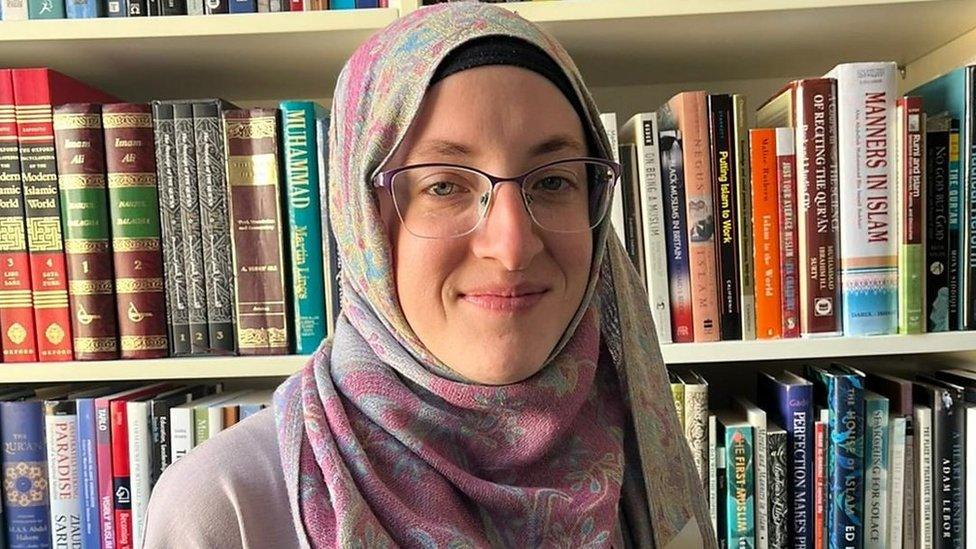Muslim farmer wants more diverse rural visitors
- Published
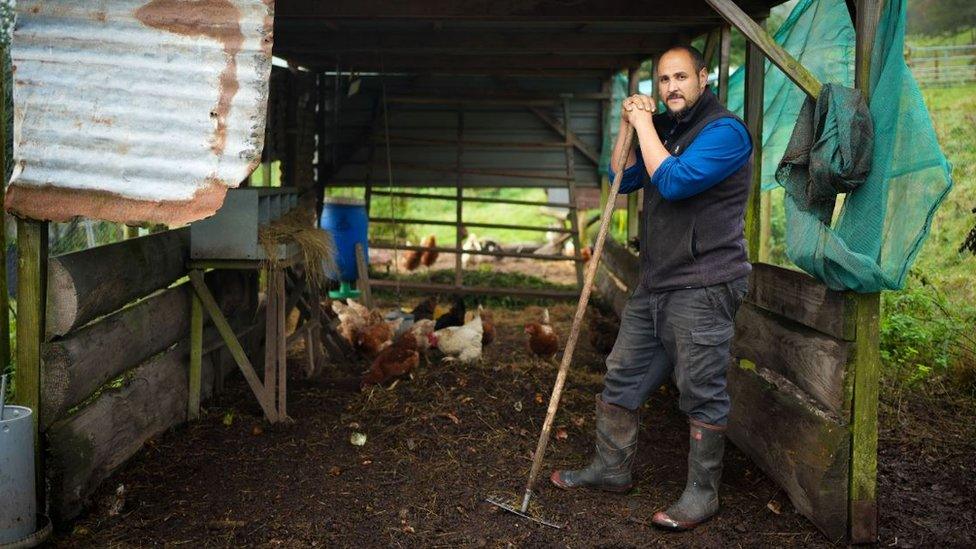
During the summer months Muhsen Hassanin's farm gets around 40 visitors a day
A Muslim family who swapped London for a Welsh farm have said they want to encourage people from different ethnic backgrounds to enjoy the outdoors.
Muhsen Hassanin taught himself to run a 55-acre farm, named Harmony, overlooking the Usk Valley, south-east Wales, and is raising his family there.
He said his children were missing out by living in Barnet, north London.
Harmony Farm was inspired by the idea of a balanced life which he said was "integral" to Islamic tradition.
"The word 'mizan', which is a key concept in the Quran, means 'the perfect balance of nature'," said Muhsen.
"That was the goal, to try and get all of us - our family, animals, buildings, food - back to harmony."
He said: "It just felt like something wasn't as harmonious as it needed to be and that's where the decision to take ourselves out of the city and make this big leap came from."
Muhsen has five children and home-schools three of them at the farm, where he has adopted a "child-led" approach to their learning.
"I believe it's the right way," he said.
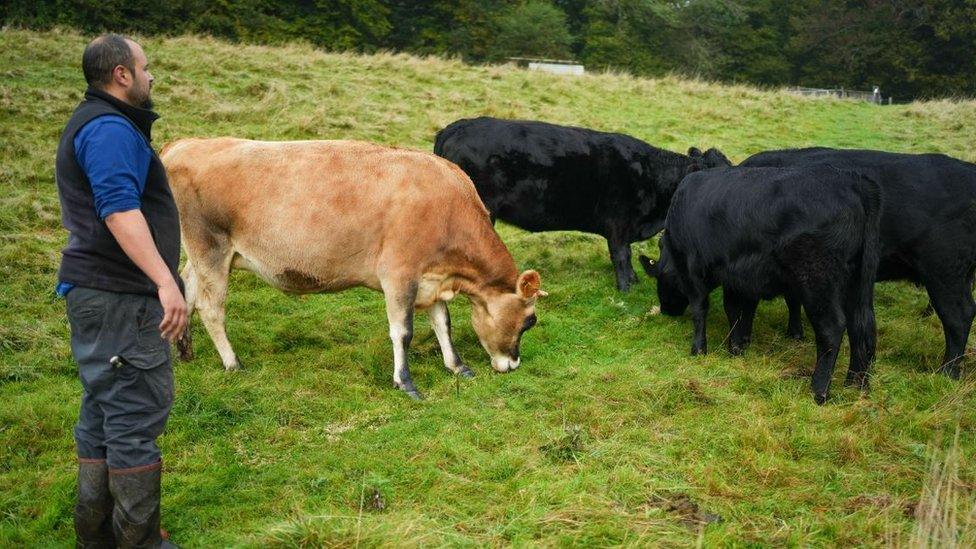
Muhsen said the aim has been to create a safe space for people from the Muslim community
"It was one of the biggest motivations for us, actually - to come out here, grow our own food and raise animals so the kids can see all of that process."
And while the farm's beginnings were born out of a fresh start for his family, it quickly grew into something much bigger.
People in the UK from black, Asian and minority ethnic backgrounds (BAME) are among the least likely to visit our natural landscapes, according to a 2019 Defra report, external.
It also found 20% fewer "visibly minority ethnic" children visited green spaces weekly compared with white, middle-class children.
Muhsen said his aim was to create a safe space for people from the Muslim community.
"They can feel at ease and also get all the benefits lots of countryside people have," he added.
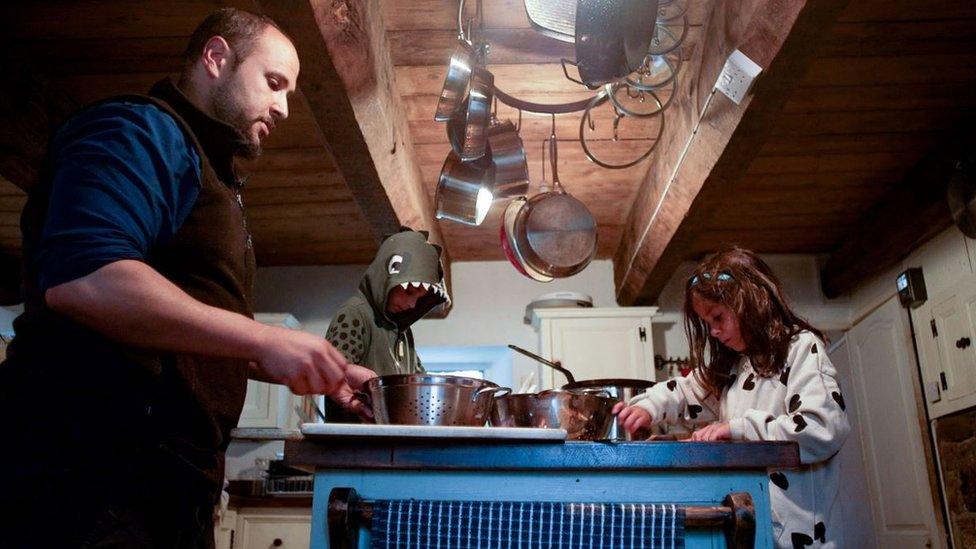
Muhsen busy in the kitchen with two of his children
Now people from across the UK are coming to visit the farm and during the summer months they are seeing about 40 visitors a day.
Muhsen believes one of the elements that draws people to the farm is the connection they feel to their heritage.
He said: "One of the messages we have is that it's like going back home without having to fly.
"A lot of our people who come here are actually not too far removed from pastoral living.
"Their parents were milking cows when they were younger but they have grown up in the cities and will feel that something's missing.''
Many of the guests stay overnight and Muhsen and his family cook traditional meals for them using home grown vegetables and halal food.
"I've always been somebody who loves to host, look after people and give them good food," he said.
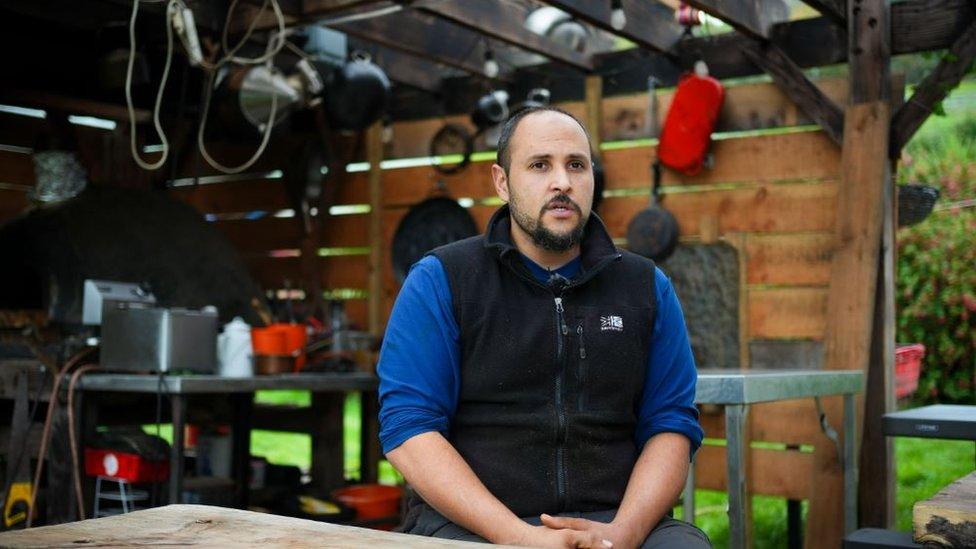
Muhsen admits to having questioned his own identity and feeling unsure of where he belongs
"We'll put a plate of food out and guests can choose to eat off one plate or share - but lots want to eat off one plate, because that's what they used to do.
"We've even had people ask us to take away the furniture because they want to sit on the floor."
Muhsen said he had questioned his own identity and has felt unsure of where he belongs.
"I'm British, but not British in that way," he said.
"That's the feeling you get when you're growing up, there's a little bit of displacement.
"There's this idea of worry when you see people from a different community you don't know about, but that only gets corrected with interaction, right?
"So, my goal coming here is to be that pioneer on the front lines who worked with the community, showed them what we are about and then opened doors for others."

PARANORMAL: Chilling ghost stories and words appearing on the walls...
BLACK MUSIC WALES: The artists who pioneered black music in Wales

- Published26 September 2022
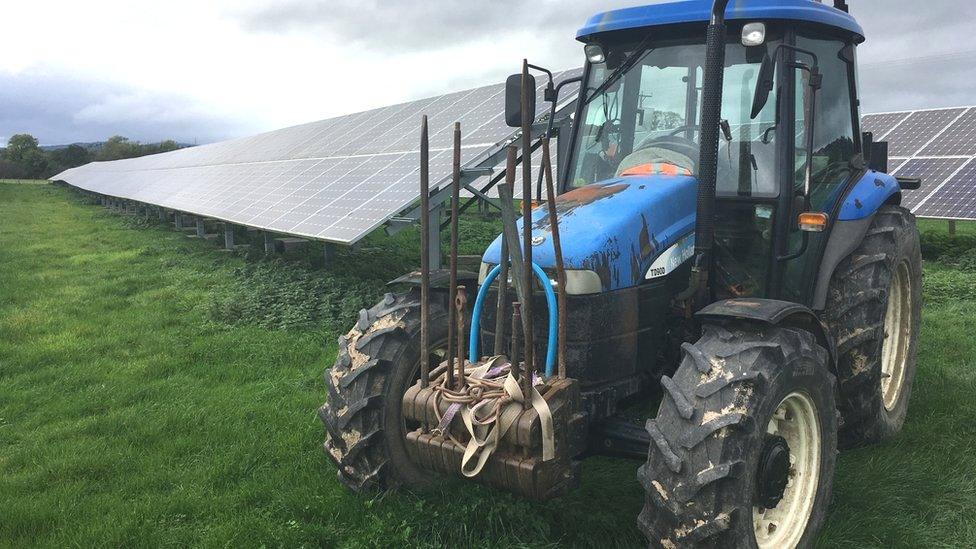
- Published24 October 2022
